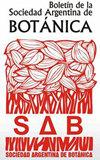民族植物学方法的物种和实践的本地可食用水果的今天。对科罗拉多塞罗(cordoba,阿根廷)前西班牙历史的解释贡献。
IF 0.7
4区 生物学
Q4 PLANT SCIENCES
Boletin De La Sociedad Argentina De Botanica
Pub Date : 2018-04-20
DOI:10.31055/1851.2372.V53.N1.19912
引用次数: 10
摘要
民族植物学方法的食用本地水果的种类和实践。对解释Cerro Colorado (Cordoba,阿根廷)晚期前西班牙时期的贡献。民族植物学研究为古民族植物学提供了重要的信息,而古民族植物学是一门解释考古植物学遗迹的学科,它立足于这些信息之上,以推断过去人类群体可能的使用和实践。本研究的目的是,首先,鉴定和记录目前Cerro Colorado及其周边地区(阿根廷科尔多瓦)居民食用的可食用水果的本地植物物种。其次,它打算详细说明与它们作为食物使用相关的实践(收获前、收获、收获后、消费、丢弃)。为了实现这两个目标,进行了开放和半结构化的访谈和参与者观察。作为最后一个目标,通过评估已获得的结果,本工作试图接近不同的活动领域,其中包含蔬菜,这可能发生在过去。总共有20种水果被认定为食物,其中13种在食用前经过某种方式的加工,其余的则作为“新鲜水果”被生吃。此外,还登记了一些产品,如欧洲、果酱、果冻和由食用水果制成的面粉。对于考古分析,可以使用来自北奎布拉达7号遗址(科尔多瓦北部塞拉)的信息。数据整合让我们了解到实际的采收后实践可能与过去的实践相关,以及野生资源消耗形式的停止存在。本文章由计算机程序翻译,如有差异,请以英文原文为准。
Aproximaciones etnobotánicas de las especies y prácticas de frutos nativos comestibles de la actualidad. Aportes para la interpretación del pasado prehispánico de Cerro Colorado (Córdoba, Argentina).
Ethnobotanical approaches of edible native fruits’ species and practices of the present. Contributions for the interpretation of the Late Pre-Hispanic Period of Cerro Colorado (Cordoba, Argentina). Ethnobotanical research provides important information from the present upon which paleoethnobotany, a discipline that interprets archaeobotanical remains, stands in order to infer possible uses and practices performed in the past by human groups. This study aimed to, first, identify and document native plant species producing edible fruits currently used by the residents of Cerro Colorado and surrounding areas (Cordoba, Argentina). In second place, it intended to detail practices associated with their use as food (preharvest, harvest, postharvest, consume, discard). In order to achieve both objectives, open and semi-structured interviews and participant observation were performed. As last objective, by evaluating the obtained results, this work tried to approach to the different activities’ spheres where vegetables are implied, which could have occurred in the past A total of 20 species whose fruits are recognized as food were identified, 13 of them are processed somehow before being consumed and the rest are ingested raw, just as “fresh fruit”. Besides, several products were registered such as arrope, jam, jelly and flour prepared from edible fruits. For the archaeologic analysis, information from Quebrada Norte 7 site (Sierra del Norte, Cordoba) is available. Data integration let us perceive actual postharvest practices that probably correlate with past practices, and the existence of discontinuation of wild resources consuming forms.
求助全文
通过发布文献求助,成功后即可免费获取论文全文。
去求助
来源期刊

Boletin De La Sociedad Argentina De Botanica
PLANT SCIENCES-
CiteScore
1.00
自引率
33.30%
发文量
46
审稿时长
>12 weeks
期刊介绍:
Bol. Soc. Argent. Bot. publishes original scientific works from the whole spectrum of Plant Biology (structure, anatomy, development, physiology, cytology, genetics, evolution, ecology, paleobotany, palynology, ethnobotany, etc.) in the diverse vegetable organisms and related groups (mycology, ficology, lichenology, briology, etc.), both in basic and applied aspects.
Taxonomic works (of systematics, phylogeny, monographs, revisions, lectotypifications, nomenclatural acts, descriptions of taxa), phytogeographic and phytosociological works (survey and classification of vegetation at different spatial scales and without restriction of methodological approaches) are considered for publication. Contributions that address complete phytogeographic units or sub-units and those that fill gaps in knowledge of vegetation in little-known territories are especially welcome. Extensions of geographical areas are published only when it comes to new citations for a country. Checklists and lists of annotated plants are not published.
Articles submitted for publication must be original and must not have been submitted to another publisher or previously published (print or electronic format). Submissions of papers already published in another language will not be accepted (autoplagio for translation).
 求助内容:
求助内容: 应助结果提醒方式:
应助结果提醒方式:


